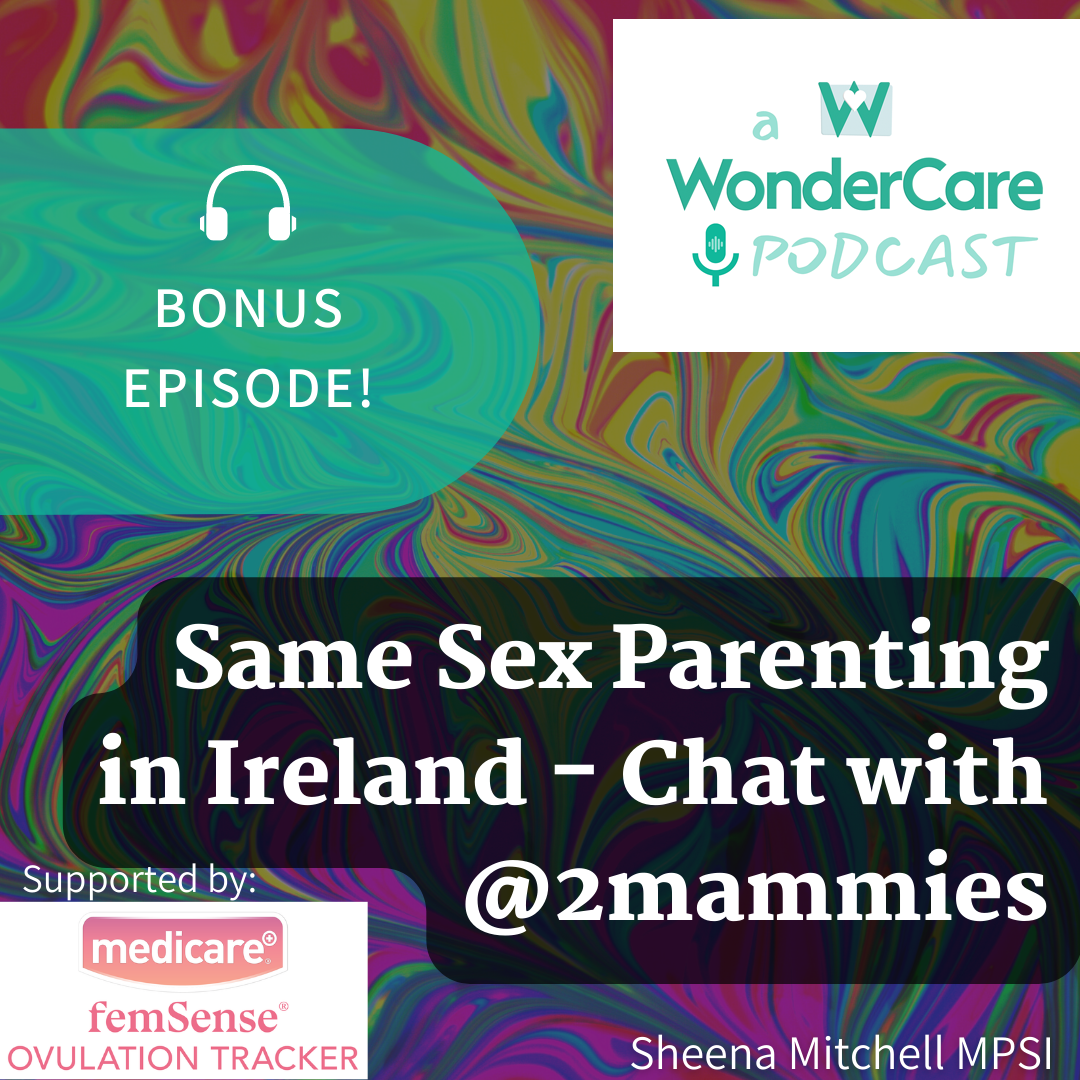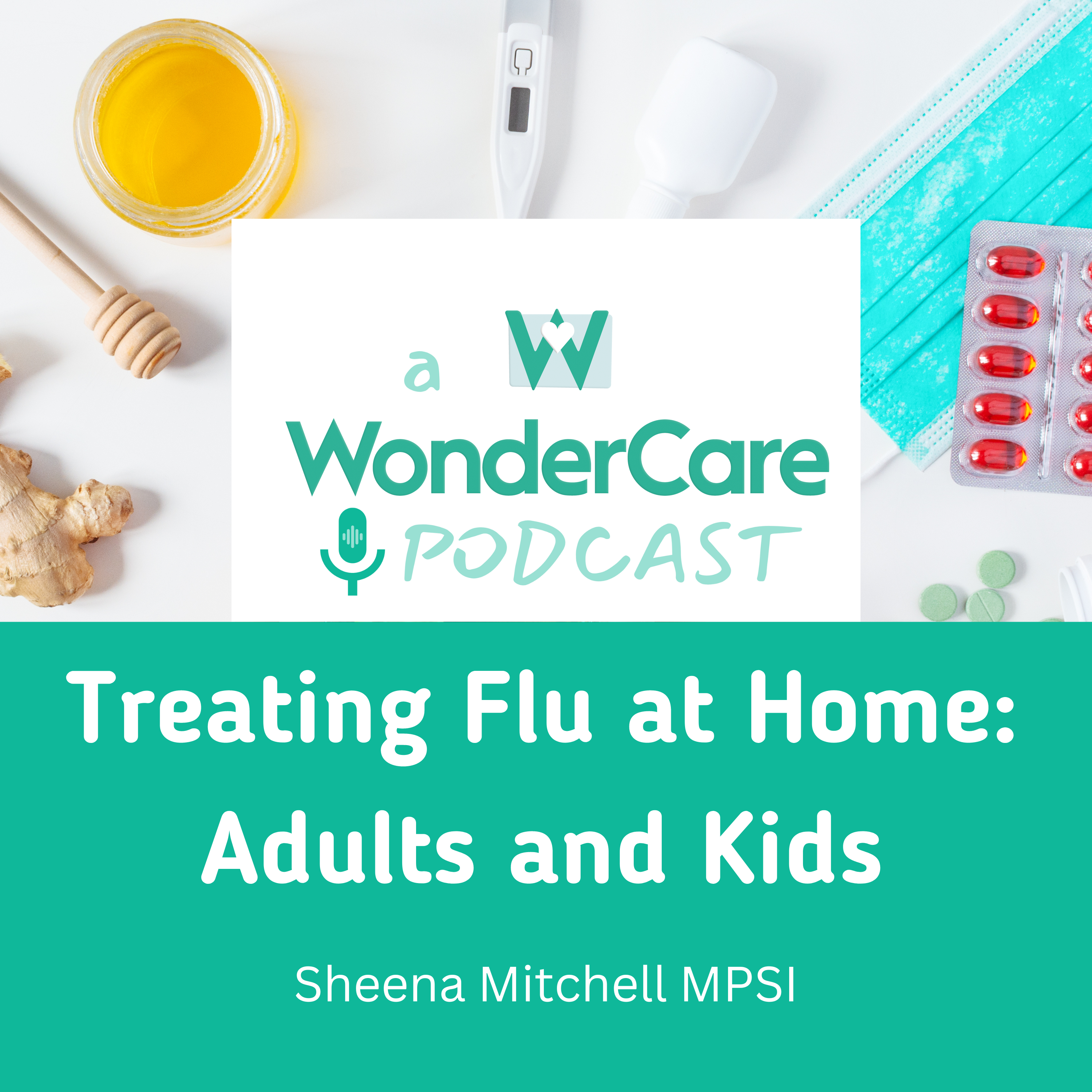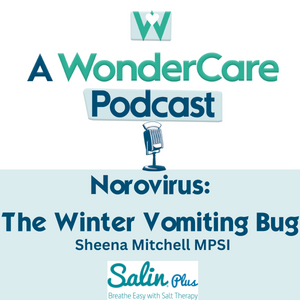Episode Transcript
Speaker 1 00:00:03 Hello and welcome to a Wonder Care podcast. I'm Sheena Mitchell, pharmacist and mom of three. I combine healthcare and practical advice to support you on your parenting journey. This season is all about family skin care, and it's proudly sponsored by real-life. Real-life. Believe your skin says how you feel, and this is so, so important as we explore family skincare concerns. Today I'm going to be talking all about baby acne. Did you know there's actually two types of acne that affects babies? There's neonatal acne, which is commonly known as baby acne, but there's also a condition called infantile acne. Today I'm gonna explain the difference between these two conditions, and I'm gonna talk a lot about their symptoms, causes, and their diagnosis and management with lots of tips on how to manage these conditions at home.
Speaker 1 00:00:55 So before I break off into the two different conditions, I just want to explain that neonatal acne, which from now on, I'm just going to refer to you as baby acne normally affects babies in the first three months of life, whereas infantile acne, which is the other condition, is less common and may occur in children from a few months of age and last up until around two years of age. This type of acne is more common in boys. So that's the two different types of acne. I'm gonna start first with the more common baby acne.
Speaker 1 00:01:26 Baby acne causes little popes or pu jewels to form on your infant's skin. A papu is like a little solid inflamed bump that doesn't have a white head or any kind of puss filled tip. A pus jue can have a little bit of that whiteness to it. Baby acne generally occurs in the first three months of life. It's thought that around 20% of healthy newborn babies may develop this kind of acne on their face and sometimes on their neck and upper trunk as well. With baby acne, you don't get white heads or blackhead, and it does usually resolve itself without treatment. It can kind of look a little bit like what you'd imagine mild teenage acne to look like. It definitely looks worse when they cry, so when they get warmer, hot or bothered, the acne will become more visible. You might notice it's starting to appear on their cheeks, nose, forehead, gin, scalp, and neck, and it can start off slowly and get a little progressively worse for a few weeks.
Speaker 1 00:02:25 These pimples really are just temporary and they usually go away within a few days to a couple of weeks. The exact cause of baby acne is not fully understood, but it is usually as a result of clogged porres. There is a suspicion that baby acne is a result of hormonal changes that affect your newborn during the birth and in the first few weeks of their life. Remember, your baby has been in utero and exposed to your hormones in the placenta and hormones have a direct relationship with the production of sebum. Sebum is an oily substance that is released by your sebaceous glands in your skin to help to protect your skin and hair. Dysregulation of sebum production is what causes problems in acne and teenagers when they go through hormonal changes. So it does seem to make sense that the hormonal changes that your baby experiences after birth can also produce an imbalance in sebum reduction, and this can lead to clogged pores, which leads to these acne type symptoms with one in five babies being affected by baby acne.
Speaker 1 00:03:31 It's something that's funnily not talked about a lot. All three of my children suffered with baby acne, and it is a frustrating condition because while you know it's harmless, you're dying to show off <laugh>, you're newborn, and you just wanna see and show everyone how gorgeous they are. You're like, oh my goodness. I did not realize that babies could have to suffer with acne, but rest assured it's not causing them any harm, and it is really, really transient so it won't last long. Sometimes people wonder about the connection between hormones and acne and breastfeeding, so it's really important to emphasize that whether you're breastfeeding or not, the hormonal changes are going to happen in your baby, and so it really shouldn't affect the way that you feed your newborn baby. Acne will go away as your newborn grows and their body adjusts to their new environment.
Speaker 1 00:04:23 One thing that can irritate baby acne is irritation on the skin. Babies have extremely sensitive skin when they're born, and their skin may very well react negatively to anything that's left on it for too long. Though it's important to remember to top and tell your baby regularly once or twice a day. This is particularly important if you have a colicky or reflux baby or just a baby who pukes a lot. We generally refer to those kind of babies, our happy puckers, so there's nothing wrong with them, and just because of an immature gut, they will posit or vomit a little bit after feeds. So it's important to wash away any of that vomit or drool with cotton woo and water or a clean water wipe and pat the skin gently dry. It's also important to ensure that you're dressing your baby in light cotton clothing.
Speaker 1 00:05:14 If your baby is overheated or too warm and their sweating sweat can also irritate their skin and cause acne symptoms to be worse. Sometimes you'll find this if you have a baby who's been wearing a babe that's gotten damp and warm and is tucked up around their neck, they can get a kind of contact dermatitis as a result, and all of this can help to contribute to symptoms of baby acne. Another little tip is just to remember not to squeeze or pick at any of the little spots because you can introduce infection generally, it's not recommended to use any creams or lotions on your newborn baby's face. If your baby's acne persists for longer than four months, then you can go and visit the GP just to get it checked out. It's also important to know that scarring is really unlikely from this type of baby acne, and as soon as the pimples resolved, they'll have smooth, beautiful skin once more.
Speaker 1 00:06:10 I just want to pause for a second to tell you a little more about the award-winning real-life products. ReLife understands that your skin reflects how you feel, and if you or anyone in your family live with any skin condition from acne and eczema to dry skin or hyperpigmentation, then you also understand this. The good news is that ReLife is here to help with a range of dermatologically tested and scientifically proven skincare products. Check out the ReLife range on Wonder care.ie. Or in your local pharmacy and learn even more by visiting relife.ie. So what about infantile acne? How is this different? Well, ultimately it tends to occur later on after the initial three to four months of life. A baby who had no acne may go on to develop infantile acne. Infantile acne is slightly different to regular baby acne in that it does involve the development of what's known as comedones, which are blackheads and whitehead.
Speaker 1 00:07:10 You can get papules and pues like we discussed earlier on, and sometimes these can get a little bit worse and become nodules or cysts, which can actually lead to scarring. Typically, this affects children from a few months of age and can last up until they're too. It's more common in boys, and perhaps this is because it's thought to be as a result of testosterone temporarily causing overactivity of the skin's oil glands for just whatever reason. Too much sebum is being produced and your body's ability to clear it out from the follicles is diminished. Infantile acne most commonly affects the cheeks, chin and forehead. Unlike regular baby acne, it's less frequent for it to involve the body. In the majority of cases. This type of acne is also not too serious and will be self-limiting, and so will require no treatment other than the same hygiene advice that I give a little bit earlier.
Speaker 1 00:08:10 However, sometimes the pues can become quite irritated, and if nodules insists develop and there is a risk of scarring, it is a good idea to see the doctor. They may recommend a topical treatment if they do. Just follow your doctor's advice and keep the face and neck area clean and dry. Remember, never rub at your baby's skin, and when you're drying it, always just pat it gently so it's not to irritate it further. I do want to emphasize that in the majority of cases where you see spots or acne type symptoms on your baby's face, it is more likely to be regular neonatal acne. So baby acne, this usually only flares up for a week or two at a time, and within a couple of months, flare ups should stop as your baby's skin adjusts to the new world around it and the crack levels of sebum production that are needed. If you enjoy a Wonder Care podcast, please do leave a review on Apple Podcasts or Spotify and give it a rating. It really helps to promote the show on the streaming platforms. Remember also to share this episode with any moms of newborn babies who may be struggling with baby acne. Tell any friends about the podcast so that I can continue to deliver family healthcare advice for free to them. Next week, I'll be talking all about tween skincare and teenage acne. I'll talk to you then.


